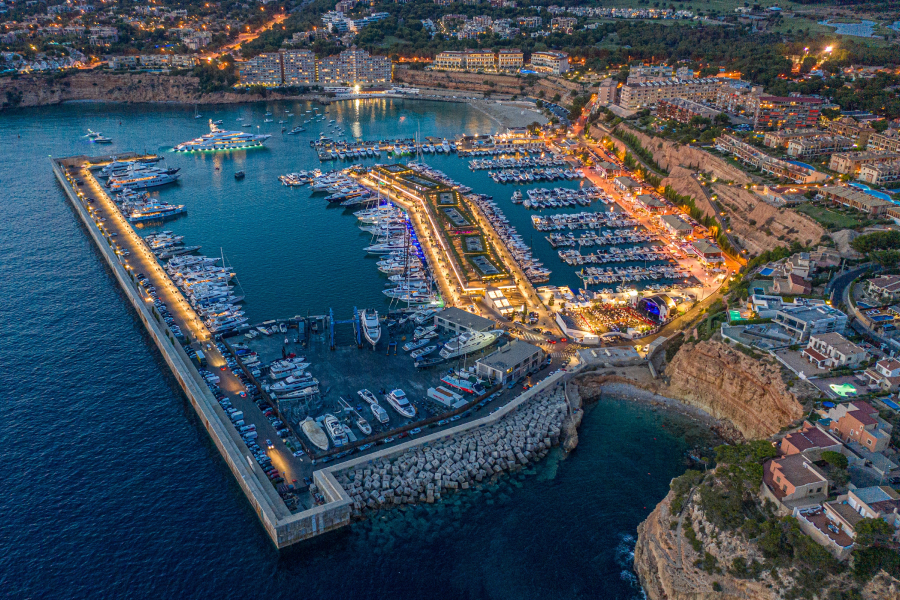Iberdrola España and Marinas de España team up to connect the country's marinas to the electrical grid
-
The agreement has a potential scope of 180 ports in Andalusia, Asturias, the Balearic Islands, the Canary Islands, Catalonia, Galicia, Murcia and Valencia
-
The partnership’s first step will be to run a industry analysis through Balantia's Net Zero Emissions Manager

Iberdrola España and Marinas de España, the Spanish Federation of Associations of Marinas and Tourist Ports, have signed a collaboration agreement to implement electrification solutions to encourage the decarbonisation of the 180 marinas that are part of the associations of Andalusia, Asturias, the Balearic Islands, the Canary Islands, Catalonia, Galicia, Murcia and Valencia, to improve their competitiveness and reduce their dependence on fossil fuels.
The first step within the partnership will be to run an industry analysis through Balantia's Net Zero Emissions Manager. The platform, recently launched as a result of Iberdrola España’s acquisition of 100% of Balantia, calculates CO2 footprint, determining the processes with the greatest impact and automatically prepares a decarbonisation plan focused on compliance with regulations and climate targets for 2030 and 2050. It also manages equipment inventory data, asset profiles and invoices.
Based on the results, an electrification plan will be studied to decarbonise and increase port competitiveness, based on electric vehicles and ships, photovoltaic self-consumption, electrification of heat, energy supply tariffs with guarantees of origin and other possible solutions that can add value.
For those emissions that cannot be reduced, Iberdrola Group, through Carbon2Nature, provides companies with high quality carbon credits based on natural projects that absorb CO2, foster the circular economy and promote sustainable development.
"This agreement with Iberdrola España not only focuses on developing actions to significantly reduce our carbon footprint, but also positions us as a benchmark in maritime sustainability. The comprehensive plan, which includes charging points for boats and electric vehicles, and self-consumption systems, will help transform our ports into more efficient and environmentally friendly facilities, improving our competitiveness and preparing us for the future of yachting," says Spanish Marinas’ President Tomás Azcárate.
"Spanish Marinas is aligned with our strategy of decarbonisation through electrification. Iberdrola España aims to promote energy efficiency in an incipient sector hand in hand with Spain's largest association of marinas and tourist ports. Although there are currently no regulations governing their decarbonisation, there are more and more Sustainability Plans and at Iberdrola España we want to help them achieve them," says Carmen Lopez, head of Smart Cities at Iberdrola España.
Growing sector
The market for electric boats in Spain is divided into three major segments: small recreational boats, which are the most numerous and accessible to private individuals, passenger transport boats for short journeys, especially in touristic areas and ports, and work boats such as small fishing boats and harbour service boats.
The sector is rapidly evolving. A crucial factor in its evolution is the charging infrastructure. The main Spanish ports are implementing electric charging points, although there is still a significant gap in these facilities’ availability.
The main challenges in the sector include the high initial cost of electric boats compared to traditional boats, the limited range of current batteries and the need to develop a more extensive recharging network. However, government support and European funds for the green transition are facilitating investment in the sector.
Decarbonisation solutions
Given the need to electrify the economy as the most efficient and least costly option for decarbonisation, Iberdrola España has a wide range of products and services that promote efficiency, energy savings and environmental conservation, while focusing on the customer, giving them greater connectivity and decision-making capacity.
These solutions are divided into Smart Mobility, as an integral solution for electric vehicles and boats; Smart Solar, for photovoltaic self-consumption; Smart Services, with peace of mind and energy advisory services aimed at improving efficiency and energy savings; Smart Clima, for HVAC solutions and energy rehabilitation.
